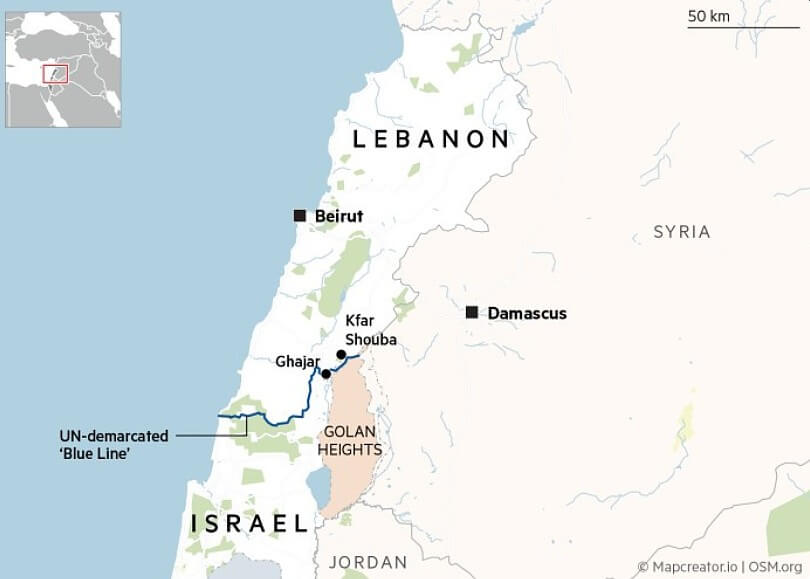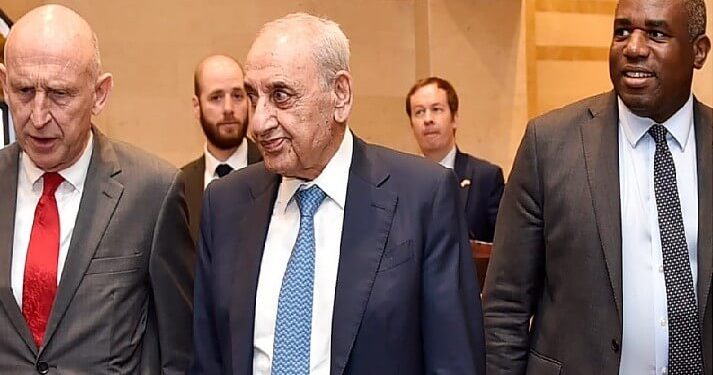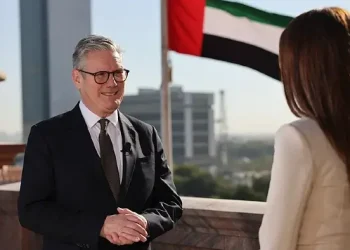Tensions along the Blue Line, the demarcation between Lebanon and Israel, have escalated, prompting UK Foreign Secretary David Lammy and Defence Secretary John Healey to visit Lebanon. Their mission is clear: to call for immediate de-escalation and push for a diplomatic resolution.

History of the Blue Line
The Blue Line, established by the United Nations in 2000, marks the withdrawal of Israeli forces from southern Lebanon.
It’s a critical but unofficial boundary, monitored by the United Nations Interim Force in Lebanon (UNIFIL) to ensure compliance and prevent conflicts. Key points about the Blue Line include:
- It spans approximately 120 kilometers.
- It is not an official international border but a demarcation line.
- The line is monitored by UNIFIL to prevent violations.
Details of the Visit
During their visit, Foreign Secretary Lammy and Defence Secretary Healey met with Lebanese leaders, including:
- Prime Minister Najib Mikati
- Speaker of Parliament Nabih Berri
- Foreign Minister Abdallah Bou Habib
- Lebanese Armed Forces Commander General Joseph Aoun
Their discussions focused on the heightened tensions at the border and the broader regional situation.
Statements from UK Officials
Foreign Secretary David Lammy expressed deep concern, stating,
“This is a worrying time for people in Lebanon; they have endured much in recent years, including the devastating port explosion. I am here to call for immediate de-escalation in the region and to emphasize the UK’s determination to avoid any miscalculations.”
Defence Secretary John Healey emphasized,
“De-escalation must be our primary focus as this region stands at a crossroads. The loss of innocent lives in recent weeks is unbearable. All sides must step back from conflict and step up diplomacy.”
British Ambassador to Lebanon Hamish Cowell remarked,
“The joint visit by the Foreign Secretary and Defence Secretary reaffirms the UK’s commitment to Lebanon’s security and stability. The situation across the Blue Line remains fragile, and escalation benefits no one. The need for de-escalation and a diplomatic solution based on UNSCR 1701 is paramount.”
Impact of Tensions and Violations
Frequent violations of the Blue Line by Hezbollah and Israeli forces have intensified the conflict. Notable incidents include:
- Since October 7, 2023, Hezbollah has launched numerous attacks on Israeli targets, averaging seven per day.
- Israel has responded with airstrikes on Hezbollah positions in Lebanon.
- Civilians on both sides face displacement and economic hardships.
The human toll and economic damage underscore the urgency of diplomatic efforts.
Diplomatic Efforts and Future Actions
The UK is actively engaged in promoting peace and stability. Future actions include:
- Ongoing diplomatic dialogues with regional and international partners.
- Advocacy for adherence to UN Security Council Resolution 1701.
- Collaboration with nations like Qatar to mediate peace initiatives.
Community and International Reactions
Lebanese communities, exhausted by conflict, largely support diplomatic resolutions. Internationally, the UK’s stance has garnered significant support, with many recognizing the need for stability in the Middle East.
Moving Forward
The UK’s diplomatic mission to Lebanon underscores the urgent need for de-escalation along the Blue Line. Continued international cooperation and adherence to UN Security Council Resolution 1701 are essential for regional peace and stability.
The efforts of Foreign Secretary David Lammy and Defence Secretary John Healey mark a significant step towards a more secure future for Lebanon and its neighbors.
Sources: THX News, Wikipedia, Oxford Academic, The Washington Institute, China Daily & British Embassy Beirut.









